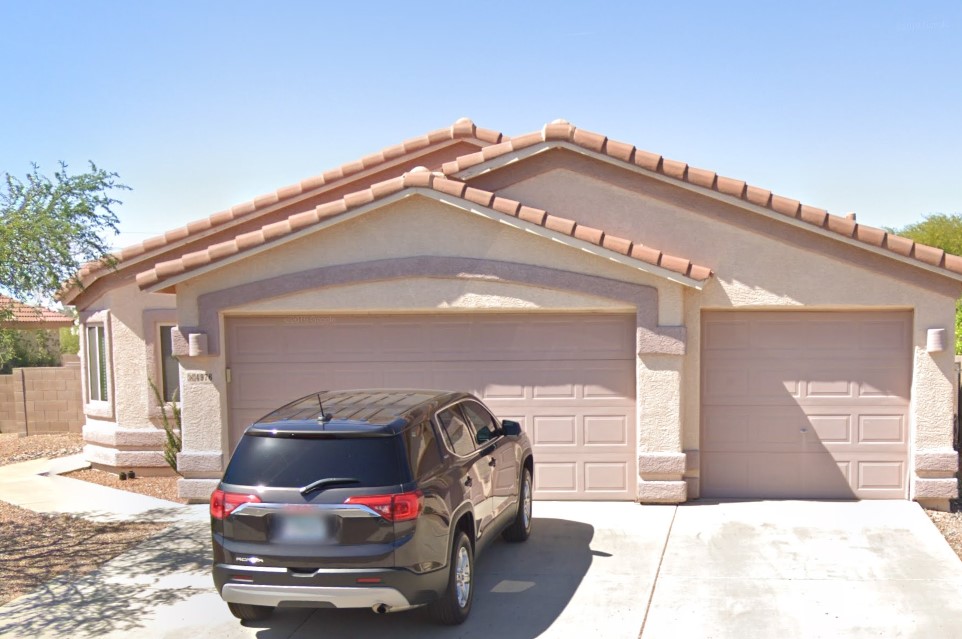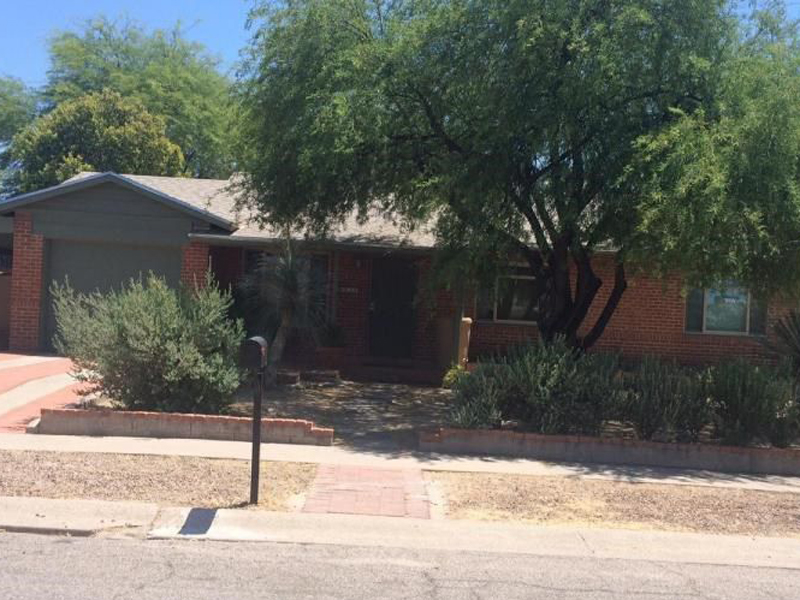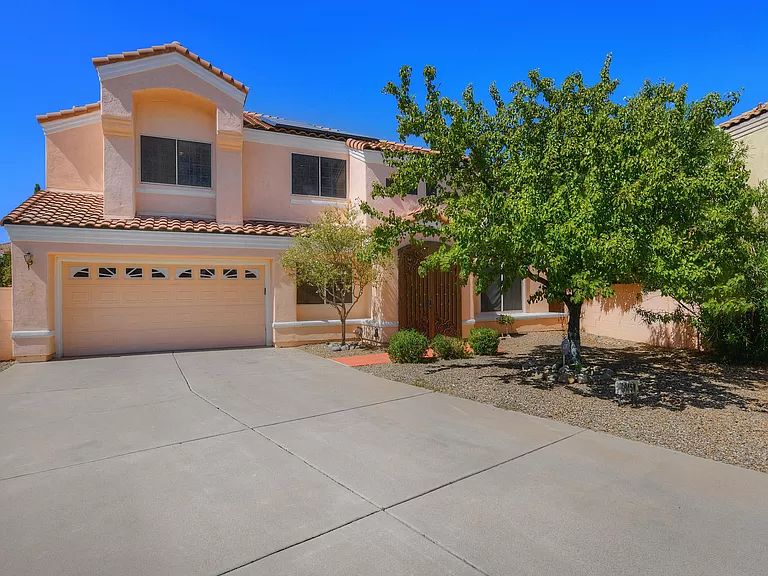Stuck Garage Door - Exactly How to Deal With Typical Opening Issues
Is Your Garage Door Stuck? Below's What to Do Very first
When your garage door will not open, begin with these vital security checks prior to attempting any repairs. First, guarantee no one is standing near the door and that vehicles are free from the opening. Seek obvious signs of damage like broken panels, bent tracks, or hanging cables. If you see a snapped springtime or severely damaged components, quit promptly and call a professional—-- these repair work need specialized devices and proficiency to take care of securely.

Inspect These 6 Things Before Calling an Expert
Prior to presuming you need costly repair services, go through this quick diagnostic checklist that addresses most garage door problems:
-
Power source: Validate the opener is plugged in and the electrical outlet is working
-
Remote batteries: Change dead batteries in your remote control
-
Hands-on lock: Inspect if somebody mistakenly involved the hand-operated lock
-
Blockages: Search for particles obstructing the door's path or sensors
-
Emergency release: Make sure the red emergency cord hasn't been drawn
-
Circuit breaker: Validate the garage circuit hasn't stumbled
These straightforward checks resolve about 70% of garage door issues without needing expert intervention.
10 Common Reasons Your Garage Door Will Not Open
Understanding why your garage door opener isn't working helps you pick the ideal option. Here are the most constant causes home owners encounter:
Dead remote batteries stand for the easiest repair—-- when batteries pass away, the remote can't send out signals to the opener. Power interruptions or tripped breakers cut electricity to the electric motor. Busted springs stop the door from lifting properly and need instant expert attention. Sensor imbalance causes security systems to obstruct door procedure. Track blockages quit rollers from relocating smoothly. Motor overload triggers automatic shutoffs when the opener spots resistance. Limitation button problems perplex the opener concerning door position. Cord damage interrupts the lifting system. Weather-related issues affect door movement throughout severe temperatures. Element wear from age progressively decreases system performance.
Trouble # 1: Dead Remote Control Batteries
When your wall surface switch works however your remote doesn't, dead batteries are normally the culprit. Most garage door remotes utilize either 3-volt lithium or 12-volt alkaline batteries. Remove the back cover of your remote and examine the battery kind. Replace with fresh batteries and examine the remote. If it still does not function, you may need to reprogram it to your opener. Consult your opener's guidebook for details reprogramming directions, as the process varies by manufacturer.
Issue # 2: Power Supply Issues
Garage door power troubles commonly originate from loose links or stumbled circuits. Inspect that the opener is strongly linked into its outlet—-- vibration can loosen up links with time. Check the electrical outlet with another device to validate it's working. Analyze your home's breaker box for stumbled circuits, particularly if you've experienced storms or power variations. GFCI electrical outlets may have stumbled and need resetting. If the opener has power however will not react, the problem most likely lies in other places in the system.
Problem # 3: Broken or Damaged Springs
Busted garage door springtimes are amongst the most hazardous parts to deal with. If you listen to a loud bang from your garage or discover the door feels very hefty when trying to raise by hand, a springtime has most likely broken. Torsion springs run flat over the door, while expansion springtimes remain on either side. Never attempt spring repair services on your own—-- these parts save incredible tension that can trigger significant injury or fatality. Professional substitute generally sets you back $150-$300 however ensures your safety and security.
Issue # 4: Blocked Security Sensing Units
Modern garage doors include security sensors that protect against closure when things are spotted. These sensors can quit the door from opening up if they're dirty, misaligned, or obstructed by particles. Tidy sensing unit lenses with a soft fabric and make certain nothing blocks the invisible light beam in between them. Inspect that sensors are properly lined up—-- a lot of have indicator lights that show connection standing. Sensing unit troubles often fix with basic cleansing and change.
Issue # 5: Track Obstructions or Damage
Garage door tracks overview rollers as the door goes up and down. Dust, particles, old grease, or tiny things can jam the system. Check tracks visually and get rid of any type of blockages with a brush or towel. Seek damages, flexes, or bending that might impede smooth procedure. Small track changes are feasible for convenient homeowners, however substantial damage needs professional repair service to avoid more troubles or safety and security risks.
Problem # 6: Garage Door Opener Motor Issues
When the garage door electric motor runs but the door does not move, numerous problems could be liable. The electric motor may be overloaded and shutting off as a safety measure. Gear wear, particularly in older devices, can stop appropriate operation. Chain or belt drive troubles impact power transmission. If you hear uncommon grinding, clicking, or humming sounds, quit using the opener instantly. Motor repairs commonly cost more than substitute, particularly for units over one decade old.
Detailed DIY Troubleshooting Overview
Follow this organized technique to garage door fixing while prioritizing security throughout the procedure:
Action 1: Check the wall switch initially. If it functions but the remote doesn't, concentrate on remote problems. If neither jobs, examine power supply.
Action 2: Analyze the hand-operated release cord. If it's been pulled, the opener is disengaged from the door. Press the cart back to reconnect.
Step 3: By hand test the door by disengaging the opener and attempting to lift the door by hand. It should move smoothly and stay in area when half-open.
Step 4: Examine noticeable components for damage, paying unique attention to springtimes, wires, and tracks.
Step 5: Examine all security features including sensors, restriction switches, and auto-reverse functions.
Action 6: Test various controls (remote, wall surface switch, keypad) to separate the issue resource.
Always wear safety glasses and job gloves when performing inspections, and never attempt fixings on springtimes or high-tension parts.
When to Call a Professional vs. do it yourself Solutions

Recognizing when to call a garage door professional versus trying DIY fixings safeguards both your security and your purse. Deal with these issues yourself: dead remote batteries, power supply problems, small track cleaning, sensor cleansing and positioning, and fundamental lubrication.
Never try these repairs yourself: springtime replacement or change, cable television repairs, major track adjustment, electric wiring issues, opener electric motor replacement, or any type of fixing entailing high-tension elements. Expert professionals have actually specialized devices, training, and insurance to deal with harmful repair work safely.
Think about repair service expenses versus substitute expenses, particularly for doors over 15 years old. Modern garage doors provide far better safety and security features, power efficiency, and reliability than older versions.
Emergency Situation Garage Door Solutions
When you're stuck with a garage door that won't open and require instant access, follow these emergency situation procedures:
Handbook Procedure: Pull the red emergency launch cable to disengage the opener. This permits hands-on operation however requires proper strategy to stay clear of injury. Raise the door slowly and uniformly, using leg muscle mass rather than your back. The majority of residential doors weigh 100-150 pounds, making them convenient for most adults.
Short-term Solutions: If the door opens manually but will not stay up, prop it open with sawhorses or clamps—-- never utilize your body or cars as assistances. For doors that will not shut totally, make certain the opening is secured if you need to leave.
Emergency situation Solution: Many garage door companies use 24/7 emergency situation solution for circumstances including protection problems, entraped lorries, or complete system failings. While a lot more expensive than normal service calls, emergency repair services provide immediate remedies when needed most.
Safety and security Warning: What NOT to Do
Garage door safety and security calls for understanding unsafe repair work that must never be tried by home owners:
Never try to fix springtimes—-- they save enough power to trigger fatal injuries when they break or are poorly handled. Do not force a stuck door—-- this can harm the opener, tracks, or door panels, developing extra pricey problems. Prevent bypassing safety and security features—-- sensors and auto-reverse mechanisms prevent serious injuries and residential or commercial property damage.
Do not neglect unusual noises—-- grinding, scuffing, or banging noises indicate problems that intensify over time. Never ever make use of the door if cords are frayed or broken—-- the door can drop suddenly. Don't attempt electric fixings unless you're a certified electrical expert—-- garage door openers utilize both 120V family existing and low-voltage control circuits.

Preventive Maintenance to Stay Clear Of Future Troubles
Normal garage door maintenance protects against most common problems and prolongs system life-span dramatically:
Month-to-month Jobs: Aesthetic examination of all parts, testing auto-reverse security functions, examining and tightening equipment, and cleaning tracks and sensing units.
Quarterly Tasks: Lubing all relocating parts with proper garage door lubricant, screening guidebook operation, and examining weather securing.
Annual Jobs: Expert inspection and tune-up, spring adjustment if required, and opener maintenance consisting of belt or chain adjustment.
Seasonal Tasks: Getting ready for climate extremes, inspecting insulation, and readjusting opener setups for temperature changes.
Consistent upkeep costs much less than emergency situation fixings and guarantees trustworthy procedure year-round.
Garage Door Will Not Open FAQs
Why will not my garage door open with the remote however collaborates with the wall button?
This generally indicates dead remote batteries, signal interference, or the need to reprogram the remote. Examine batteries first, after that consult your opener handbook for reprogramming guidelines.
Can I manually open my garage door if the power is out?
Yes, pull the red emergency situation release cord to disengage the opener, then raise the door manually. Be gotten ready for the door's complete weight and lift with proper method to stay clear of injury.
How do I recognize if my garage door spring is damaged?
Signs include a loud bang from the garage, the door feeling very heavy when raising manually, visible gaps in the spring coils, or the door just opening a few inches before quiting.
Is it secure to utilize my garage door if it will not open up right?
No, partial procedure shows mechanical problems that can worsen instantly. Stop using the door and have it checked by an expert to prevent further damages or injury.
What should I do if my garage door opens up but will not close?
Inspect safety and security sensors for blockages or misalignment, examine the tracks for debris, and check how to lubricate garage door tracks and rollers the auto-reverse function. If these do not solve the trouble, seek advice from an expert.
Just how much does it cost to repair a garage door that won't open?
Costs differ widely depending on the trouble: battery substitute ($5-$10), expert medical diagnosis ($50-$100), spring substitute ($150-$300), or opener replacement ($200-$500).
Can weather affect my garage door's capability to open?
Yes, severe cold can enlarge lubricants and influence metal components, while warmth can cause development issues. A lot of problems resolve as temperature levels normalize, but consistent problems may need professional attention.
Why does my garage door open a couple of inches after that stop?
This generally shows broken springtimes, limit button problems, or track obstructions. The opener's security functions quit procedure when resistance is identified, avoiding damages to the electric motor or door.
Obtain Specialist Assist for Complicated Concerns
When do it yourself troubleshooting doesn't solve your garage door troubles, specialist technicians provide the know-how and tools required for secure, lasting repair work. Certified professionals diagnose issues properly, make use of manufacturer-approved parts, and offer warranties on their work.
Expert services include: extensive system evaluations, springtime and wire substitute, opener repair service and substitute, track positioning and substitute, electric troubleshooting, and emergency solution phone calls.
What to expect: ahead of time rates, licensed and insured technicians, same-day service for numerous repair services, and follow-up maintenance suggestions.
The majority of garage door companies offer complimentary estimates for significant repair work and can offer prompt services for urgent troubles impacting home protection or lorry accessibility.
Obtaining Your Garage Door Working Again
A garage door that won't open doesn't need to destroy your day or damage your budget plan. Start with basic troubleshooting steps like checking power, changing batteries, and examining for apparent obstructions. Several troubles have fast DIY services that recover normal procedure within mins.
Nevertheless, recognize when expert assistance is necessary—-- especially for spring-related problems, electric troubles, or complex mechanical failings. Attempting hazardous fixings on your own takes the chance of major injury and usually creates a lot more pricey issues.
Normal maintenance protects against most garage door problems and makes certain trustworthy operation for many years to come. When issues do occur, resolve them immediately to prevent more expensive repair work and preserve your home's protection and comfort. Whether you need an easy battery substitute or complete system overhaul, options exist to get your garage door functioning smoothly once again.
Eddie's Garage Door Service
5505 N La Canada Dr, Tucson, AZ 85704
(520) 965-8259